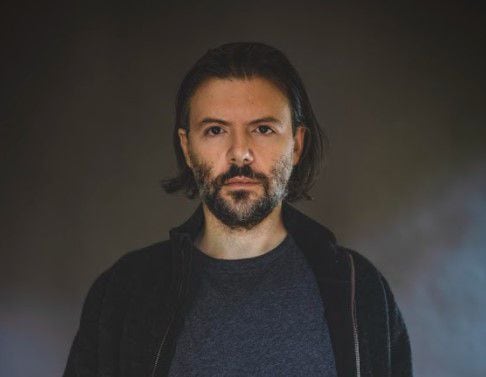Olallo Rubio releases his most recent film Why is life like that? and it will be completely free through the Convoy Network platform.
The film will be able to see the tone of satire and national character of the Mexican, which will be accessible from this Thursday, March 31 from 11:00am.
It is a coincidence that this film will be released on March 31, the birth of the Nobel Prize for Literature Octavio Paz, since his essay work, with which he won the award, spoke precisely about Mexican behavior.
In addition to that curious fact, the film was adapted from a podcast in which Infobae asked Olallo Rubio some questions to find out what his process was like in this new film “for all Mexicans”.
What was the process of making this documenta film like?

It is based on a podcast that is on the CONVOY NETWORK platform, it is humorous and a satire of an investigative journalistic program combined with philosophical rambling.
The podcast is narrated by Rubén Moya, one of the most recognized voices in the modern history of Mexican television. I'm not exaggerating when I say this (it's a dubbing institution. Voice of He-man, Ripley: Believe it or not, Morgan Freeman), it's a very familiar voice.
In that podcast, in each episode we try to answer one question, of everything. From big universal questions, to questions about more trivial questions like Why is the sky blue? Or why do men have nipples and don't breastfeed anyone? or why do they say Kane West is a genius? Why is the mame train unstoppable? Things like that, it's humorous.
We do podcasts and we also make films and one day it occurred to us that we should make a documentary film based on that podcast and the truth is that it is the most popular podcast on the platform, so it was worth it.
We thought it would be simpler because whenever you make a film or start making a film you think it's going to be simpler, particularly this one that we thought was going to be done between films, it was a modest project and obviously as always it will be much more technically complex, more than we expected.
A lot of archival material, more than a thousand entries of archival material, a lot of animation (half an hour of animation) and in several episodes of the podcast we deal with topics that compete only in Mexicans, why is the Mexican so macho? Why don't Mexican men read or read little? Because the average reading in Mexico is very low.
So we decided to make this documentary film based on the alleged identity of the Mexican, the Mexican national character. We asked ourselves if there really is such a thing or if it is actually the product of a model designed by the ruling classes to make the working classes believe that they are in a certain way, and we said: ok let's do this as a movie.
What do Mexicans say about themselves?

What I can say is that we have a very contradictory perception of ourselves. On the one hand we say that we are hospitable and kind, but on the other hand we are corrupt, traitors and I think the problem lies in generalization, in thinking that there are psychological complexes on a social scale and that is why Roger Bartra says it very clearly.
Because at some point towards the end of the film, which is quite irreverent, we are trying to claim the term in a positive way, because it has been abused a lot of it.
The film questions itself, questions his speech. Near the end we ask ourselves, does everything we have said make no sense? Are we lost in the Labyrinth of Solitude? , is there really such a thing as the identity of the Mexican or was it a fabrication of some intellectuals who used the tools of study, of their respective times that are no longer so valid and that in many cases have expired? Ignacio Sánchez Prado says that very well.
That is what is important: Our perception is very contradictory because we have also been sold the idea that we are a way and that is not true.
It is like a song that we could no longer play and that I would like to do it in the future, perhaps with some sequel, it is the subject of miscegenation. There are several historians, including Federico Navarrete, who are talking about how miscegenation is actually a myth and that catches my attention.
We all believe that it is a mestizo people, mostly mestizo. There are many myths and the film talks about those myths and also, in some way, demystifies the myths it presents and then suggests a new myth.
It's a meta comment, too.
What was the most difficult thing for you to make the film?

First, finance it, because there were two funding campaigns. We thought that we were only going to do a single collective funding campaign and after a co-producer was going to come in and with that we were going to end it, but the pandemic came and it was very complicated.
The ideal co-producer was a film exhibition complex, then the meteorite came and it was the dinosaur and we were temporarily out of judgment, so that was complicated.
The compilation of all the archival material, on the one hand, and the theme of animation. What's more, half an hour of animation and that was also quite complicated, many discussions with the animators who did an excellent job, considering that it is a totally independent, low-budget work.
It is an animated film, almost a cartoon and also the footage, restoration of footage, color correction, audio design, music. There is orchestral music, we recorded with the Budapest art orchestra, if it was enough chamba.
Or it seemed at first, but that's how it is.
KEEP READING:
Últimas Noticias
Debanhi Escobar: they secured the motel where she was found lifeless in a cistern

The oldest person in the world died at the age of 119

Macabre find in CDMX: they left a body bagged and tied in a taxi
The eagles of America will face Manchester City in a duel of legends. Here are the details

Why is it good to bring dogs out to know the world when they are puppies



